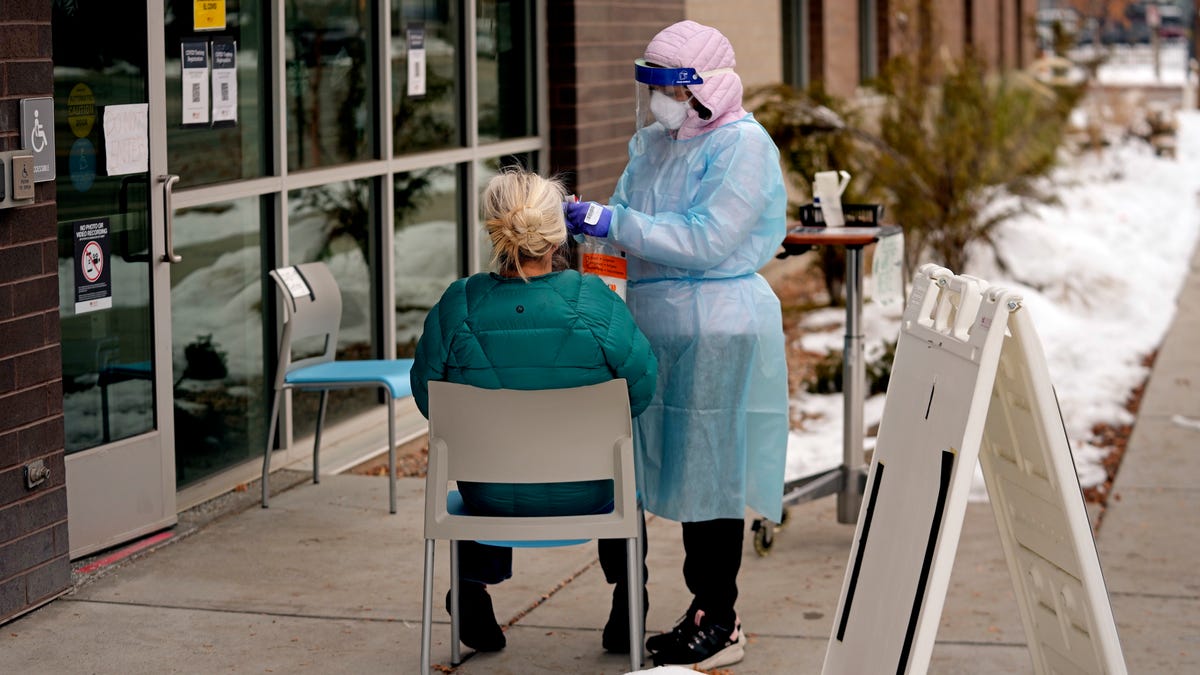Marie, who left a corporate job in Missouri after contracting COVID-19 in the first wave and then developing what came to be known as long COVID, received five months of short-term disability through her employer. It was “a life-saver,” she said.
But in 2022, she caught COVID again, and this time it’s taken much longer to recover from the long COVID that followed.
“I’m suffering fatigue, brain fog and post-exertional malaise where if I do any small thing it exhausts me," she said.
Not knowing when or if she’ll be able to go back to work, Marie (who asked that only her middle name be used for fear of reprisal from the Social Security Administration) began pursuing long term disability coverage and is also applying for disability coverage through Social Security.
"My lawyer said, ‘Expect to be denied, especially because it’s long COVID,’” she said.
Marie and other COVID “long haulers” must navigate a disability claims system that was already difficult before the pandemic, with sometimes years-long wait times and no clear guidance on how to prove their disability.
Long COVID has supercharged those problems for many by adding additional hurdles.
Although the federal government has said that long COVID can be considered a disability under the Americans with Disabilities Act, the health care system doesn’t have a clear way to diagnose it. There is no single test to identify long COVID, and not having a positive test of the initial COVID infection can be a barrier to qualifying for disability, long haulers say.
For people suffering with a disabling condition, having to provide records proving they’re disabled is itself exhausting, Marie said.
“It’s death by paperwork and for people with LC something like paperwork, as crazy as it sounds, can cause us to crash. With cognitive issues, it’s so much harder to get through long forms," she said.
Pretty fucking grim shit. :doomer:
The number of people waiting for long-term disability coverage, and exhausting their savings while they wait, can be expected to grow. According to a November report by the Department of Health and Human Services, as many as 23 million Americans suffer from long COVID. That pool is likely to expand, HHS said, “as COVID-19 continues to circulate."
Contrary to a common perception that COVID is “just a cold,” recent data showed 28% of people who had COVID reported new or worsened symptoms three months after an initial infection. And right now, according to wastewater analysis, the virus, as of April 2023, is circulating at a higher rate than at this time in 2021 or 2022.
The ending of public health precautions such as mask mandates, even within medical facilities, has ensured that the virus will continue to infect more people, with many of them filing for disability.
Last month Congress voted to end the three-year COVID public health emergency. The Biden administration has pledged to help, but the promised help does not include making it easier for long haulers to recoup income lost when they were or are incapacitated.
Two bills addressing the COVID crisis, the Care for Long COVID Act and the COVID-19 Long Haulers Act, which promised improved research, treatment options and other resources — but nothing to help long haulers with disability — died in Congress. Currently there is nothing proposed by the administration that would make the disability application process easier or faster for COVID long haulers.
Hudson gave one cause for hope: that the disability filing process, while never easy or fast for people with any chronic ailment, may become less of a burden for COVID long haulers over time.
“I’ve seen how (Social Security) is progressing to see long COVID as a real thing. The medical community is doing the same, recognizing that this is not imaginary," she said.
The flip side of this growing recognition is that long COVID, a chronic disorder from a preventable communicable virus, will continue to afflict more people.
“I never thought I would have as many long hauler clients as I have, and I can see that increasing as time goes on until we get this virus under control," Hudson said. The average person on the street doesn’t know anything about COVID long haulers. They think they’ll get COVID for a few days and they’ll be OK. They don’t see it as a long-term risk.”
Straight from the horse's mouth--the United States Department of Health and Human Services only expects the number of people suffering from long COVID to grow as the virus circulates. And "letting it rip" would certainly qualify as letting the virus circulate! In case you were wondering if the pandemic is over.
Anyways, there's no rule that says you can't start masking again if you've stopped. :party-parrot-mask:


deleted by creator